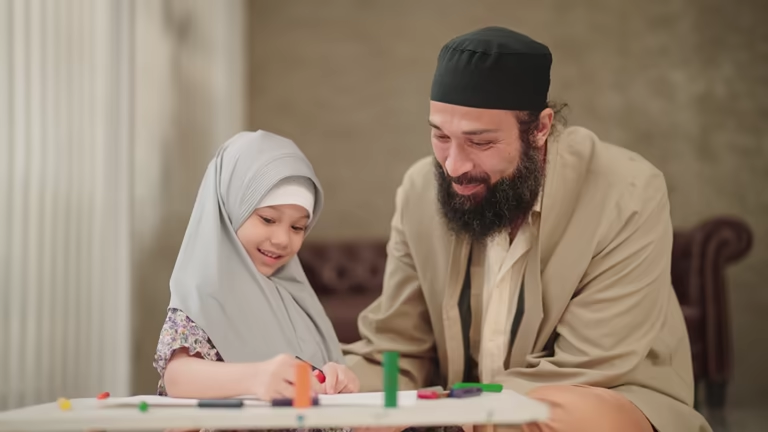Introduction
Running a school today is not just a routine job. Every principal and head teacher must understand that he is a leader. Did you know that every other school suffers from administrative problems? An education system is strong only when its leadership is active and responsible. According to research, 70% of student performance is directly dependent on leadership. If you want your school to come out on top, you need to be not only a rule maker but also a role model. Leadership means managing every aspect of the school, be it staff, students or parents. here, we will share 12 mastermind tips that every principal and head should know. These tips will help streamline your school system and make your leadership easier and more effective.
1. A clear vision and mission is a must

Every school needs a clear vision and mission. Vision means your long-term goal. Mission is the steps taken to achieve this goal. When all this is clear to staff, students and parents, their confidence also increases. It is the principal’s job to explain the mission and vision to all new staff. Tell them what direction we are working towards. At the beginning of each session there should be a short meeting in which all this is discussed. Vision and mission should also be written on the notice board and website of the school. When the direction of the school is clear, everyone understands their responsibility. This clarity improves long-term results and brings about a school’s reputation.
2. Focus on staff training.

A principal’s most important asset is his teaching staff. A good and trained staff can make the future of the school. Training programs enhance the knowledge and skills of teachers. A small workshop should be planned every month. Nowadays there are also online training courses that can be easily accessed. Teachers should be taught new teaching methods and classroom management techniques. Leadership’s job is to motivate them and invest in their learning. Training not only improves teaching but also improves discipline and communication. When teachers are confident and prepared, their performance naturally improves. It is also important to see the results after training. If a staff member is vulnerable, additional support should be provided. A strong and united staff strengthens the foundation of the school.
3. Strengthen communication systems
Good communication is the lifeline of the school. When there is proper communication between the leader and the staff, problems are reduced. There should be a small briefing session every day. This gives the staff clarity about today’s plan. There should also be open and respectful communication with students. If a student has any problem, his point of view should be heard. Have a suggestion box where staff and students can give feedback anonymously. Also keep in regular contact with parents, giving them monthly updates and progress. Documentation is important in every meeting so that there is no confusion later. When there is open and clear communication at all levels in the school, trust builds and the system runs smoothly.
4. Create a positive environment.
A school environment should be healthy for both students and staff. People are more productive when they are free from stress. Principals should come to school every day with a positive attitude. Respect every member of staff, value their opinion. When leadership is soft, the team also becomes cooperative. Color, decoration and cleanliness also have an effect in the school. Put motivational quotes in every class. Share good words and short stories in the morning assembly. There should also be a staff lounge or relaxation zone for stress relief. People work happily when the environment is friendly. It also affects students’ discipline and results. A good environment ensures productive and peaceful learning.
5. The disciplinary system should be strong.
Discipline is the backbone of every school. If there are no rules, the structure of the school collapses. Every student and staff should know what the school rules are. The principal must be fair and consistent in applying the rules. Every violation should be dealt with equally. But the method of punishment should not be harsh. Students also understand better if the matter is discussed gently and intelligently. Every class teacher should be given the responsibility of maintaining discipline in the class. Form a disciplinary committee that prepares monthly reports. When the discipline system is strong, both learning and behavior improve. Make the parents aware of the rules as well.
6. Time management must be learned.

Good time management is the secret to school success. Every principal should value every minute of the day. The same schedule should be followed from morning assembly to closing of school. Both staff and students stay disciplined when everything is done on time. Teachers must keep the timetable in mind while assigning classes. Equal time should be given to each subject. A calendar of meetings, events and exams should be shared at the start of the term. If the principal himself is punctual, the staff will also follow it. Make a plan for each day and review it at the end of the day. When time is used optimally, stress is reduced. Schedule appropriate times for parent meetings, results days and training sessions. Good time management is not just leadership, it is a productivity system. The daily routine of the school runs smoothly and every task is completed on time. This increases both credibility and trust.
7. Build a strong relationship with your parents.

The relationship between school and parents is very important. Student performance improves when parents are involved. Principals should plan monthly or quarterly parent-teacher meetings. Every parent should be given access to their child’s academic and behavioral records. Communication through digital apps and WhatsApp groups is also helpful. Parents should be involved not only in problems but also in development. Trust is built when the school communicates regularly with parents. Each class teacher should develop a routine for taking feedback from parents. Principals themselves should sometimes seek feedback from parents through phone or meetings. Parents are supportive when they feel that the school is sincere. Family involvement also boosts student confidence. The parent-school bond creates a positive overall culture. Invite them to every event so that they too feel a part of your child’s school.
8. Curriculum should be updated.
A curriculum is a living document that should change over time. Reviewing the curriculum every year is part of leadership. Topics like digital skills, AI, and problem solving have become important nowadays. Principals should work with teachers on curriculum design and improvement. Include activities and projects that enhance student creativity. If the curriculum becomes outdated, students will not be able to compete in the market. It is useful to get feedback at the end of each term. When the curriculum is relevant, the interest of the student also increases. Include technology-based subjects and soft skills modules. Learning outcomes for each subject should be clear. It is the principal’s job to make the curriculum modern and meaningful. Develop an age-appropriate and logical curriculum plan for each class. The updated curriculum improves both the school’s image and performance.
9. Innovation Meets Education
Today’s school is incomplete without technology. Smart learning tools make learning easy and fun. The principal should have a smart board or projector system in every class. Teachers should be taught IT skills so that they can use digital resources effectively. Online attendance, report cards and homework systems make the school professional. Students should also learn computer skills. Using tools like LMS or Google Classroom are great for sharing knowledge. A school’s status improves when it embraces technology. Both teachers and students become conscious and aware. Leadership should take care of IT budget and planning. Assign monthly digital tasks to each teacher. When technology is used easily, learning becomes easier and more up-to-date. The combination of education and innovation strengthens the next generation.
10. Education with Values, Not Just Grades

Education should not be limited to marks only. Every student needs a good upbringing. Principals should focus more on character building. A moral lesson or motivational talk is essential every week. Class teachers should also discuss values and ethics. Morning assembly should be best used to promote positive thinking. Discipline and respect should be a part of every student. Counseling sessions are beneficial for weaker students. Every student should be guided and encouraged. Behavioral problems are less common when parenting is strong. Students’ confidence and social skills also improve. Principals and staff should be role models. A leader who is self-disciplined will also be self-disciplined. School culture should promote not only knowledge but also good values.
11. Track results and progress.
Every student’s performance is a reflection of the school. The principal should develop a system of monthly and period-wise progress reports. Each student’s strengths and weaknesses are understood through academic tracking. Every teacher should maintain the assessment record of his/her class. Remedial classes should be organized for underperforming students. Monitoring progress should not be limited to results but also to behavior and attendance. Use digital tools such as Excel sheets or school ERP systems. Parents should share regular reports. The principal should analyze the results of each subject and plan for improvement. Issues are considered timely when tracking is done. This approach improves results and promotes confidence. Data-driven decision-making secures the school’s future.
12. Strengthen leadership roles
A principal or head teacher is not just a routine checker. A leader inspires, directs and guides the system. There should be justice and logic in every decision. When leadership is strong, employees are motivated. Every matter should be handled calmly and sensibly. A good leader is involved in every department. His role is active in planning, discipline, training and parenting. The principal must be aware of his role. Every member of staff should be trusted and supported. When the leader is cooperative, the team is also loyal. Regular feedback and team involvement improve the system. The leadership style should be soft but firm. A school excels when a principal has a vision.
Conclusion
The success of a school is directly dependent on its leadership. If the principal is active, honest and visionary, the school succeeds in every field. Every leader needs to develop these leadership skills. Every role requires communication, planning, discipline and motivation. The 12 mastermind tips in this article are a roadmap for every principal. By implementing them, you can organize your school system. When staff are trained, students are motivated and parents are engaged, results naturally improve. Your mission is only.
It is not about running a school, it is about building a system. Good management means taking steps to improve every day. If you sincerely follow these tips, your school will surely excel.



A principal’s role in fostering a nurturing and productive school environment is crucial, and this text highlights some key aspects effectively. The emphasis on regular teacher training is commendable, as it directly impacts both teaching quality and student outcomes. However, I wonder if the text could delve deeper into specific strategies for online training programs—are there particular platforms or methods that have proven successful? The idea of creating a stress-free environment for both staff and students is well-articulated, but how can schools measure the effectiveness of such initiatives? Additionally, the balance between discipline and compassion in rule enforcement is a delicate one—what are some best practices for achieving this? Overall, the text provides a solid foundation, but I’d love to hear more about real-world examples or success stories from schools that have implemented these ideas. What do you think is the most challenging aspect of maintaining a healthy school environment?
We have integrated libersave into our regional voucher system. It’s fantastic how easily it allows us to bundle various providers on a single platform. Whith regards, TEKUP
The importance of a supportive and well-trained teaching staff cannot be overstated. It’s inspiring to see how investing in teachers’ growth can transform a school’s future. Monthly workshops and online courses sound like practical ways to keep educators updated and motivated. However, I wonder how often schools actually implement these ideas in practice. Is there a way to measure the long-term impact of such training programs? Leadership’s role in fostering a positive environment is crucial, but how do we ensure consistency in their efforts? A healthy school environment benefits everyone, but what steps can be taken to address stress among staff and students effectively?
Wir haben libersave in unser regionales Gutscheinsystem eingebunden. Es ist toll, wie einfach man verschiedene Anbieter auf einer Plattform bündeln kann. Whith regards, TOCYL